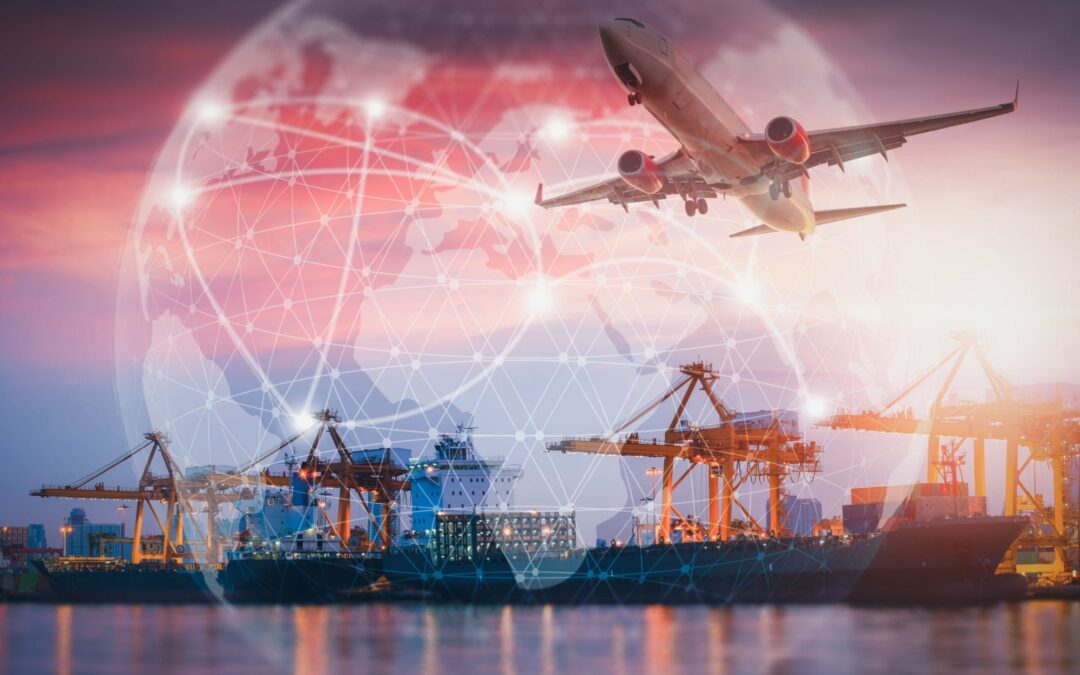Navigating the complexities of international trade law can be difficult for businesses, especially in the presence of constantly changing government regulations in countries. To remain competitive, businesses must keep up with changes in trade and investment policies.
Government regulations can have a significant impact on the profitability and sustainability of businesses, and failure to comply with these regulations can result in costly fines and penalties. However, navigating these regulations can be a challenging and time-consuming process, especially for small and medium-sized enterprises (SMEs) that may not have the resources to keep up with changes to government policies[i].
We will discuss how businesses can navigate the complexities of international trade law:
Keep abreast of changes in government policies
Trade and investment policies change frequently, so businesses must stay informed of any changes that may affect their operations. Monitoring government websites and news outlets, as well as attending industry events and conferences, can help with this.
Seek out expert advice
Because some businesses may lack the in-house expertise to navigate complex government regulations, seeking expert advice can be beneficial. Hiring a trade attorney or seeking advice from a government agency that specializes in trade and investment policies can be an example of this.
Understand the potential consequences for your company
Changes in government regulations can have a significant impact on businesses, so it is critical to understand the potential consequences. Changes in import/export regulations, for example, may have an impact on your supply chain, whereas changes in investment policies may have an impact on your ability to secure funding for growth.
Compliance Programs and Risk Assessments
Businesses should develop internal compliance programs to ensure adherence to international trade laws. Businesses should conduct regular risk assessments to identify potential compliance gaps and implement appropriate measures to mitigate risks[ii].
It should be noted that as global regulations proliferate, and as stakeholder expectations increase, businesses are exposed to a greater degree of compliance risk than ever before[iii].
Recognize the Importance of Governing Law
The governing law determines the legal framework within which a contract is interpreted and enforced. Different jurisdictions have varying legal systems, which can significantly impact the rights and obligations of the parties involved. It is essential to carefully evaluate the potential risks and benefits associated with different governing laws before finalizing a cross-border contract. Familiarize yourself with trade laws, tariffs, customs procedures, import and export data, and taxation in both your home country and the target market[iv].
Identifying the Appropriate Governing Law
Businesses should consider several factors when determining the best-governing law, including the nature of the contract, the parties involved, the location of the assets, and the legal infrastructure of the jurisdiction. For example, if a contract involves the sale of goods, it may be beneficial to choose a governing law that incorporates the United Nations Convention on Contracts for the International Sale of Goods (CISG), which provides a standardized framework for international sales contracts.
Harmonizing Conflicting Laws
In some cases, the parties to a cross-border contract may come from jurisdictions with conflicting laws. In such situations, it may be necessary to include a clause within the contract that explicitly addresses the potential conflicts and provides a mechanism for resolving them. This can help minimize uncertainties and ensure that the contract remains enforceable across different jurisdictions. It should be noted that laws of conflicts accompanied by bilateral or multilateral agreements among sovereign states define the options available for bringing a suit[v].
Considering International Treaties and Conventions:
International treaties and conventions can play a significant role in cross-border contracts. For instance, the New York Convention on the Recognition and Enforcement of Foreign Arbitral Awards provides a widely recognized framework for enforcing arbitration awards across jurisdictions. By incorporating relevant international treaties and conventions into the contract, businesses can enhance the enforceability and effectiveness of their agreements in international transactions.
Seeking Legal Expertise
Navigating the complexities of international governing laws often requires specialized legal expertise. Engaging experienced international lawyers who are well-versed in cross-border contracts can greatly assist in identifying potential pitfalls, negotiating favorable terms, and ensuring compliance with applicable laws. Their knowledge and insights can help businesses mitigate risks and maximize the benefits of their international contracts.
Navigating the complexities of International Taxation
Navigating the complexities of international taxation can be a daunting task for any business. With different tax laws and regulations in each country, it can be challenging to ensure compliance and avoid penalties. However, it is crucial to understand the nuances of international taxation to maximize profits and minimize tax liabilities.
Transfer pricing has proven to be one of the most effective methods of navigating the complexities of international taxation. One of the primary benefits of providing transfer pricing documentation is that it plays a critical role in assisting businesses to comply with the tax regulations of the jurisdictions in which they operate. The majority of tax authorities require multinational corporations to keep detailed records and documentation that prove the nature of their business transactions. Companies that submit these documents proactively not only demonstrate their unwavering commitment to complying with local tax laws but also reduce the risk of audits[vi].
Conclusion
International transactions provide businesses with a tremendous opportunity to expand beyond their current boundaries and explore new markets. Navigating the complexities of international trade law, on the other hand, is critical, and it necessitates a thorough understanding of the applicable legal, regulatory, and compliance requirements. International transactions can be successful if the parties involved have a thorough understanding of international trade law.
[i] https://fastercapital.com/startup-topic/navigating-the-complexities-of-international.html
[ii] https://thetradecouncil.com/best-practices-for-navigating-international-trade-laws/
[iii] https://www2.deloitte.com/us/en/pages/risk/articles/compliance-risk-assessments-the-third-ingredient-in-a-world-class-ethics-and-compliance-program.html
[iv] https://www.seair.co.in/blog/10-essential-tips-for-successful-international-trade.aspx
[v] https://www.econstor.eu/obitstream/10419/23042/1/2004-01_conflict.pdf
[vi] https://eg.andersen.com/navigating-international-taxation/
Written by Olufe Popoola for The Trusted Advisors
Email us: [email protected]

